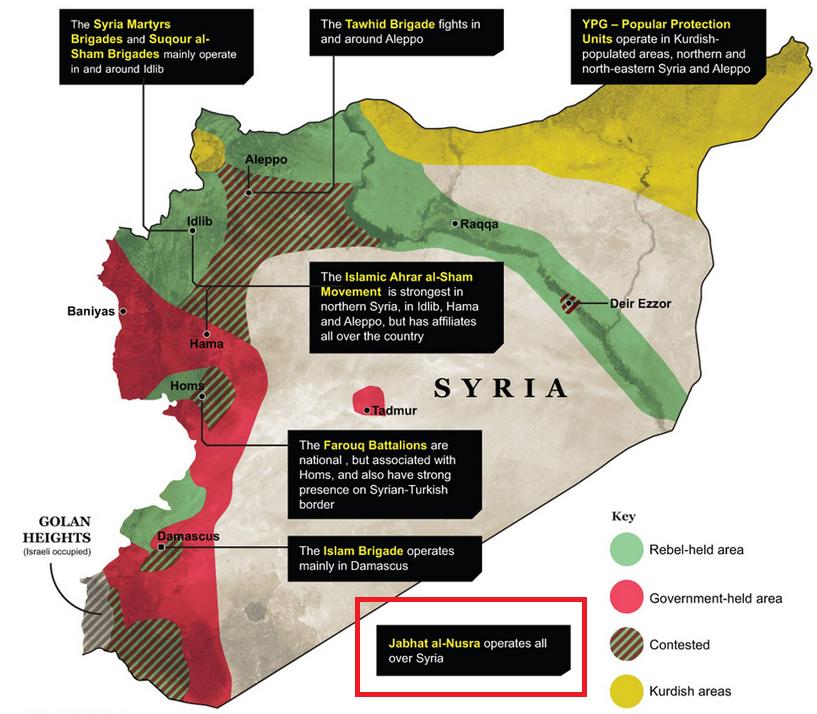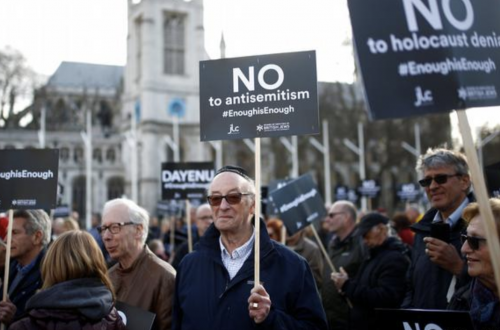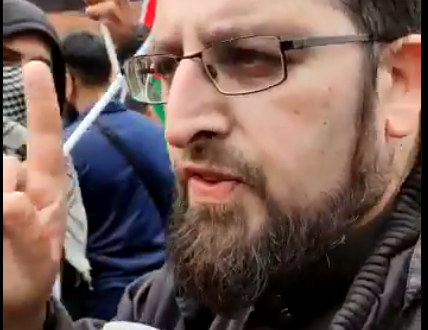This is a guest post by Alfred
David Aaronovitch has a piece in the Times today supporting the decision to arm the rebels. He appears to argue that not arming rebels in Syria is akin to abandoning Syria.
I sympathise with his sentiments, but the arguments about supporting the Iraq war cannot be simply transposed into reasons why we should arm the rebels.
There was a window of opportunity for the West to back the anti-Assad protesters swiftly, and to do its best to force out Assad. That window, as Boris Johnson pointed out, closed a long time ago, and now the Syrian opposition is awash with Islamist terror – of the sort that murders children in front of their parents for using Mohammed’s name in hyperbole, asserts the dominance of sharia law, and promises a certain genocide to Alawites.
Aaronovitch dismsses Johnson’s concerns by saying:
Boris’s argument was that if we were going to intervene it should have been done ages ago (when he probably opposed it), but we didn’t and now it’s too late.
Rather than deal with the substance of Johnson’s arguments, Aaronovitch prefers to speculate about what Boris may or may not have thought regarding Syria many moons ago – as if this is all about Boris Johnson. And so the child murdered by the al-Nusra Front is implicitly forgotten.
It is plain folly to ignore concerns about Al-Nusra. They began with suicide bombing, deliberately murdering civilians in Damascus. Syria’s Christians are rightly terrified of the group, which CNN estimates may have 10,000 fighters in Syria. With Al Nusra uniquely operating throughout Syria (see map), it will be impossible to keep weapons out of their hands.
Even if we want to give the weapons to other groups, Al Nusra will get them sooner or later.
Consider this report from Reuters, about a brigade of rebel fighters called Ghurabaa al-Sham:
The Islamists moved against them at the beginning of May. After three days of sporadic clashes Omar’s more moderate fighters, accused by the Islamists of looting, caved in and dispersed, according to local residents. Omar said the end came swiftly.
The Islamists confiscated the brigade’s weapons, ammunition and cars, Omar said. “They considered this war loot. Maybe they think we are competitors,” he said. “We have no idea about their goals. What we have built in two years disappeared in a single day.”
The group was effectively marginalised in the struggle to overthrow Syria’s President Bashar al-Assad. Around 100 fighters are all that remain of his force, Omar said.
It’s a pattern repeated elsewhere in the country. During a 10-day journey through rebel-held territory in Syria, Reuters journalists found that radical Islamist units are sidelining more moderate groups that do not share the Islamists’ goal of establishing a supreme religious leadership in the country.
The moderates, often underfunded, fragmented and chaotic, appear no match for Islamist units, which include fighters from organisations designated “terrorist” by the United States.
Clearly, weapons the West give to rebels will end up in the hands of terrorists.
Aaronvitch thinks we will face a terror threat if we don’t support the rebels:
“It seems to me that a perfectly feasible consequence will be a victory for Assad and Hezbollah, a full-scale repression in Syria and a seething Sunni resentment towards the rest of the world, which will not be magically contained within the region.”
In other words, if we don’t arm the rebels, we’ll give Al Qaeda a reason to get angry with us and blow us up.
But as we know, Al Qaeda will try to blow us up anyway – this is the very point that Aaronovitch is so aware of usually when discussing domestic security and international terrorism; an understanding that allows Aaronovitch to make excellent insights often when others would misunderstand. Why then would he link the global terror threat to Western policy?
We all know how Islamism radicalised people in the 90s by portraying non-intervention in Bosnia as the West deliberately choosing not to protect Muslim life, and then radicalised people in the 00s by painting the Iraq war as the West trying to deliberately kill Muslims. To think we can somehow drive Western policy in a direction which leaves Al Qaeda with no excuse to hate us, is wishful thinking at best.
The weakness of the West’s position is being torn to shreds by Vladimir Putin, who is unacceptably propping up the murderous Assad regime.
When Putin can tell the G8 –
‘Recently, the British people suffered a huge loss; A violent assassination, a very brutal killing of a British serviceman. It was a tragedy next to his barracks on the streets of London. ‘Clearly the opposition in Syria is not composed all of this but many of them are exactly the same as the ones who perpetrated the killing in London. If we equip these people, who is going to control who is going to have these weapons?’
– it is very hard to argue against.
Or who can argue against the fears of Syrian Christians? As Fr Alexander Lucie-Smith writes in the Catholic Herald:
The Christians of Syria have no real choice in the matter. They have been a tolerated, indeed a privileged, minority under the Ba’athist regime (as they were in Iraq); if the regime falls, their fate will be that of Iraq’s Christians. They cannot understand, indeed are completely bewildered by, what I told them, namely that the British government is considering arming their enemies. They pray that this will not happen, and so do I.
Sadly there are many advocating arming the rebels, who only view this conflict two-dimensionally. Pick the less-bad side or you’re supporting the more-bad side. In this vein, Marko Attila Hoare confuses Boris’ anti-al Nusra argument with a pro-Assad line, as if concern about giving guns to tomorrow’s Bin Ladens, is the same as wishing a genocide upon the Syrian people.
Most Syrians don’t want to support Assad or Al-Nusra. They just want to get out of the hellhole that their country has become, and they know there is no hope. Politicians speak about there being no “easy” option, but truthfully, there is not even a hopeful option for Syria as things stand.
Giving guns to Al-Qaeda will not magically create hope ex-nihilio.
Assad needs to face justice, he needs to stand down, the UN needs to take greater action – perhaps sending in the blue helmets, economic sanctions need to be applied against Assad worldwide, people need to urge their leaders and representatives to act on this, Russia and China need to withdraw their support from Assad and we need to be urging them to do so.
But providing arms which will end up in the reddened hands of the Al Nusra Front within days, seems crass and irresponsible, when we know full well these weapons will soon been turned against more ‘blaspheming’ children like Mohamed Qataa.



